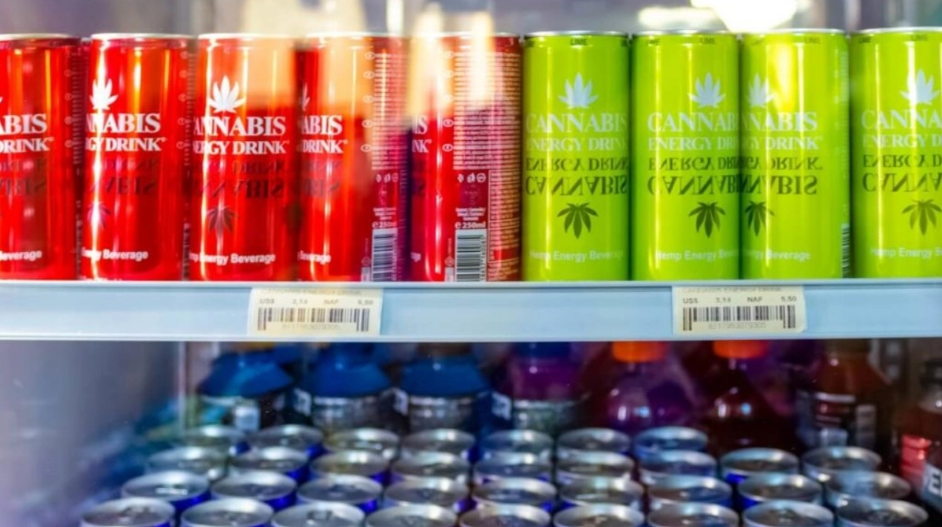Business
Health Canada: No new marijuana beverage rules before fall 2022

Canadian marijuana companies awaiting a potentially major regulatory overhaul that could pump new life into the country’s fledgling infused beverage market will have to wait a bit longer.
Canada’s federal health department told MJBizDaily that proposed changes to regulations that would effectively increase the amount of cannabis beverage consumers could purchase at any one time by more than eightfold aren’t expected to be ready until fall – at the earliest.
Some businesses had been hoping the proposed change would be rolled out before summer, but the government now says that won’t happen until at least the fall.
“I can’t think of any stakeholder across the cannabis supply chain, from producers to retailers, that would be pushing back against this regulation,” Paul Weaver, head of cannabis at Boston Beer Co., told MJBizDaily.
“As far as regulations changes go to cannabis in Canada, the hanging fruit doesn’t get any lower than this. It’s a pretty straight-forward fix that everyone wants.
“It would have been great to have something in time for summer. This is really the first summer where cannabis beverages are starting to have an opportunity to shine.”
Currently, the “equivalency rates” for cannabis possession limits in Canada mean an individual can possess only 2.1 liters (71 ounces) of cannabis-infused beverages – or about five standard-sized cans.
In March, the government proposed increasing the dried cannabis equivalency for cannabis beverages so that 1 gram of dried cannabis is equal to 570 grams of cannabis beverages.
That would have the effect of raising the public possession limit for cannabis beverages for an adult to 17.1 liters – or 48 standard-sized beverage cans.
“Health Canada is in the process of analyzing the results of the public consultation … to inform the development of the final regulatory amendments,” a spokesperson for the federal cannabis regulator told MJBizDaily via email.
After the analysis is completed and the final regulatory package is prepared, Health Canada said it will submit the proposal for consideration by the Treasury Board and approval by the Governor in Council before it comes into force.
“It is not anticipated that this will be completed before fall 2022,” the spokesperson noted.
The 45-day public consultation ran from March through April 26.
Health Canada said it received 83 total submissions from a variety of stakeholders, including researchers, public health organizations, provincial stakeholders, the general public, cannabis license holders and industry associations.
Industry’s view
Boston Beer’s Weaver welcomed the progress.
“There is movement on it, so that is encouraging to hear,” he said in a phone interview.
Weaver expects the new rules, if implemented, would be good for businesses such as his.
“By expanding how many (beverages) an individual consumer can buy, the most passionate beverage cannabis consumers can use that format exclusively as opposed to the need to augment (consumption) with other form factors or coming into the dispensary once a week,” Weaver said.
“So we’re trying to create purchase behaviors and those types of purchase habits for loyal consumers.”
The new rules would not change the maximum limit of 10 milligrams of THC per container.
The public consultation involved the piloting of a new online consultation feature, where stakeholder comments may now be viewed.
Canadian cannabis producer Tilray Brands wants to be able to sell multipacks of beverages with various flavors, but such an opportunity would require a further change to the regulations.
“This would help promote better sales of beverages in the legal cannabis industry as consumers could purchase a mixed pack to sample various flavors offered by a License Holder,” according to the New York-based company’s submission.
Other proposals
The government is also proposing to allow researchers to use Good Production Practices (GPP)-compliant cannabis rather than solely relying on Good Manufacturing Practice (GMP)-compliant cannabis.
Since a relatively small percentage of Canadian cannabis is produced according to GMP standards, that would mean more supply is available for testing.
According to the proposal, current barriers to research “may result in both researchers being unable to use grants received for cannabis research, and funding bodies deciding not to offer grants for cannabis research, which could create a risk of researchers choosing to pursue their work outside of Canada.”
The proposed amendments would exempt nontherapeutic cannabis research involving human subjects from the clinical trial requirements under the Food and Drug Regulations, “where that research is conducted under a cannabis research license issued under the Cannabis Regulations.”
Most of the public comments were in favor.
In its submission, Alberta-based cannabis producer Sundial noted that the proposed changes are positive and supported.
“Enabling access to non-therapeutic research for GPP compliant products already widely available on the market will allow licence holders to better understand the effects of these products,” Sundial wrote in its submission.
“Additional regulatory updates are needed to allow licence holders to publish this information, in a context that relates to products, or product attributes, to further incentivize collection of information and distribution to Canadians.”
The proposed changes are available here.
Source: https://mjbizdaily.com/health-canada-plansno-new-cannabis-beverage-regulations-before-fall-2022/